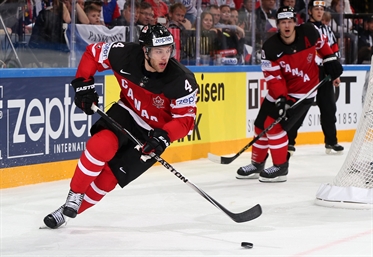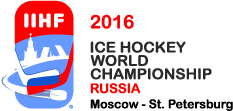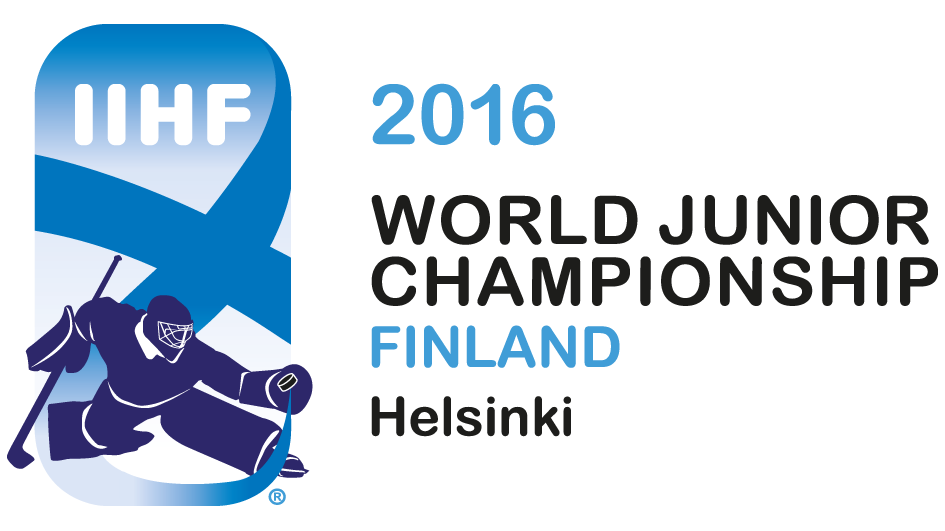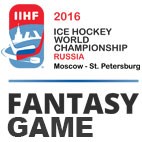Can Canada do it again?
Can Canada do it again?
Defending champs bring youthful roster to Russia

 This year, just three players are back from Canada's golden 2015 team: Matt Duchene, Taylor Hall (pictured) and Ryan O'Reilly. Photo: Andre Ringuette / HHOF-IIHF Images
This year, just three players are back from Canada's golden 2015 team: Matt Duchene, Taylor Hall (pictured) and Ryan O'Reilly. Photo: Andre Ringuette / HHOF-IIHF Images
Repeating as champions at this tournament has become more challenging than it was in the past. Five different nations have won gold at the last six IIHF World Championships. Russia was the last country to take back-to-back titles (2008, 2009).
So a lot of factors must fall into place for the Canadians, who have three returning players from 2015, to claim top spot again. Generating team chemistry quickly with players from rival NHL clubs. Adapting to the big European ice surface. Getting big-time performances out of young players and those who are new to the international game with its tighter officiating. This will be an entertaining team to watch at Yubileiny – and possibly beyond.
Goal
The 2014 team in Belarus looked to an Edmonton Oilers netminder trying to establish himself as a NHL starter, and this year’s squad will do the same as Cam Talbot makes his IIHF debut. The 28-year-old Talbot, an undrafted former NCAA all-star, has seen more NHL action this season (2.55 GAA, 91.7 save percentage in 56 games) than Ben Scrivens did two years ago. Tall and athletic, Talbot has struggled at times with consistency, but the Oilers have confidence in him, giving him a three-year contract extension in January.
Calvin Pickard of the Colorado Avalanche, who played 21 games in his NHL sophomore season as Semyon Varlamov’s backup, is the number two goalie. Pickard’s previous IIHF experience came at the 2010 IIHF U18 World Championship, where Canada finished seventh.
Defence
Can Chris Tanev emerge as a linchpin for this Canadian defence? Though little-known outside Vancouver, Tanev, 26, was one of the few players to prosper during John Tortorella’s disastrous 2013-14 stint as the head coach of the Canucks. Impressively, he has just 40 PIM in 295 career NHL games. He's the oldest blueliner on this team. His penchant for shot-blocking and making a good first pass will provide a needed counterpoint to the high-risk, high-reward styles of Matt Dumba (Minnesota Wild) and Morgan Rielly (Toronto Maple Leafs).
Ben Hutton, another Canuck, must think he’s living the dream. The 23-year-old former University of Maine star wasn’t even expected to crack Willie Desjardins’ roster this season, but went on to post 25 points as a regular. Now, he’s wearing his country’s jersey for the first time ever. Ryan Murray, the #2 overall pick of the Columbus Blue Jackets in 2012, recorded the same number of points as Hutton. He finally got to showcase his two-way style over a full 82-game slate after struggling with injuries in his first two seasons.
There is potential here, but youth and international inexperience could prove to be an Achilles heel come the playoff round.
Forward
Canada may have the best group of forwards in the tournament – and also the most irritating. Let’s start with the best.
All eyes will be on Connor McDavid (Edmonton Oilers) in his senior IIHF debut. Named a Calder Trophy finalist with 48 points in an injury-shortened 45-game rookie season, the 19-year-old has the potential to follow in the footsteps of previous Canadian hockey superstars Wayne Gretzky and Sidney Crosby by winning the scoring title at his first Worlds. (Gretzky had 16 points in 1982 in Finland, while Crosby totalled 16 points in 2006 in Latvia.) In a year with fewer exceptional NHL newcomers, the skilled and determined Max Domi (Arizona Coyotes) would also be up for the Calder Trophy after notching 18 goals and 52 points in the desert.
When it comes to experience, captain Corey Perry (Anaheim Ducks) has it in spades as a two-time Olympic gold medalist and Stanley Cup champion. Coming off his sixth season with 30 or more goals, Perry will be antsy after failing to score in the playoffs against the Nashville Predators. He’s also noted for his ability to get under the skin of other players, a trait he shares with Brad Marchand (Boston Bruins) and Brendan Gallagher (Montreal Canadiens).
Marchand scored a career-high 37 goals this season, and is representing Canada for the first time since winning consecutive World Junior golds in 2007 and 2008. Gallagher, whose second effort is never questioned, picked up 40 points in just 53 games, and will be eager for redemption after the Habs’ nightmarish season. All these forwards, along with first-time 30-goal man Boone Jenner (Columbus Blue Jackets), can be difference-makers as long as they stick to playing between the whistles.
The three returning forwards from last year are 2015 all-star Taylor Hall (Edmonton Oilers), 2014 Olympic gold medalist Matt Duchene (Colorado Avalanche), and Ryan O’Reilly (Buffalo Sabres). They’re all coming off seasons of about 60 points, and their presence will help to ensure that Canada fills the net at a rapid rate. Nonetheless, this team will be hard-pressed to come close to last year’s Canadian-record output of 66 goals.
Coaching
Bill Peters flies under the radar as the coach of the Carolina Hurricanes, but the second-year NHL bench boss has learned his craft from the best in the business. He collaborated with Mike Babcock as an assistant coach with the Detroit Red Wings, and the 51-year-old’s association with Babcock goes all the way back to the WHL’s Spokane Chiefs at the turn of the new millennium. Expect Peters to preach the traditional uptempo Canadian style with aggressive forechecking. He’ll be assisted by two NHL coaches who were relieved of their duties this season, Dave Cameron (ex-Ottawa Senators) and Mike Yeo (ex-Minnesota Wild), plus Hockey Canada’s Misha Donskov.
Projected Results
Trying to predict where Canada will finish this year is as hard as tracking a Shea Weber slap shot. The Canadians could power their way to the final, but could also very well miss the mark and get knocked out in the quarter-finals. Despite the world-class selection of forwards, the goaltending and defence both present significant question marks. Canada should contend for first place in Group B, and then we’ll see what happens.
Back to Overview














































































